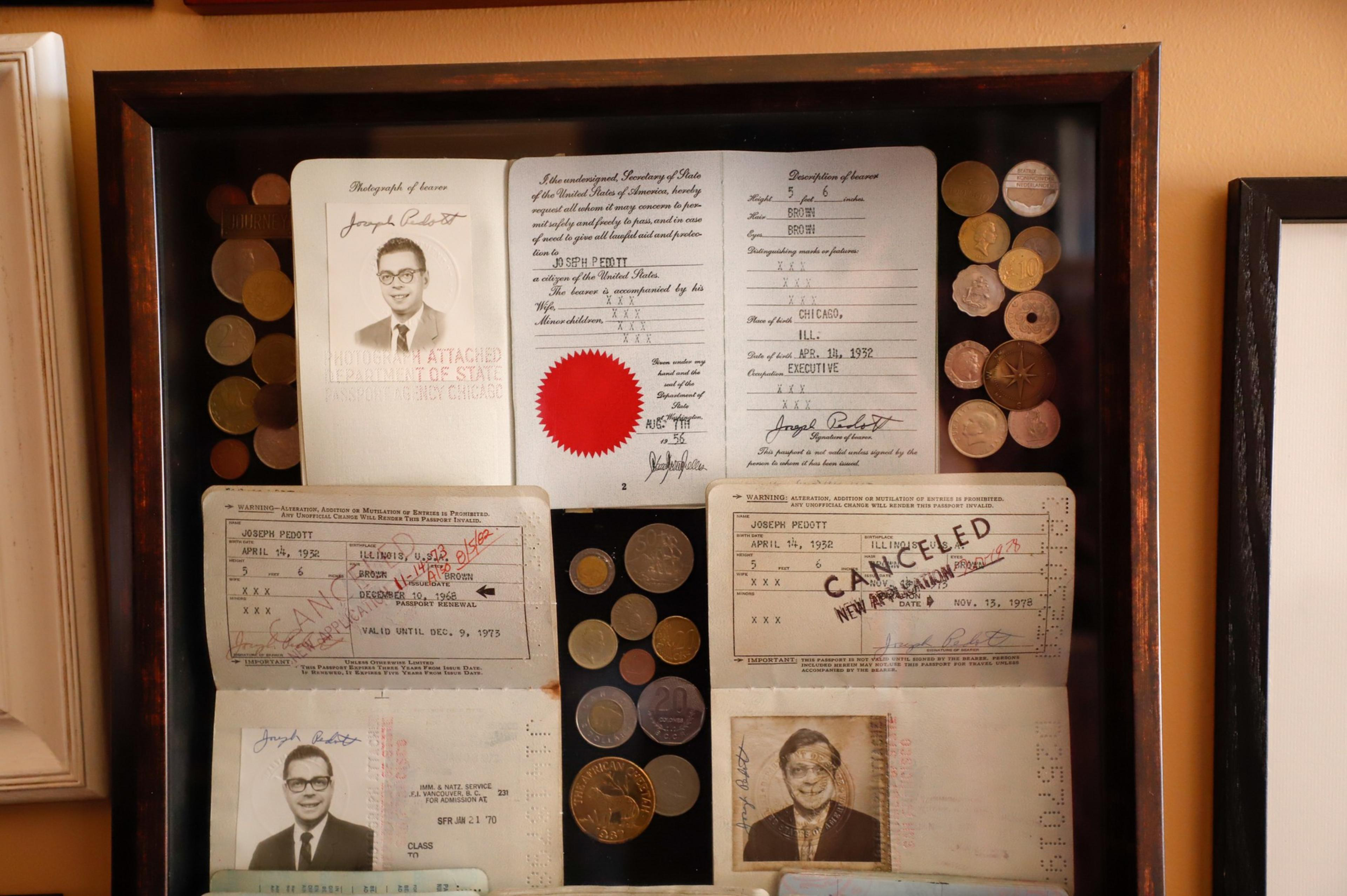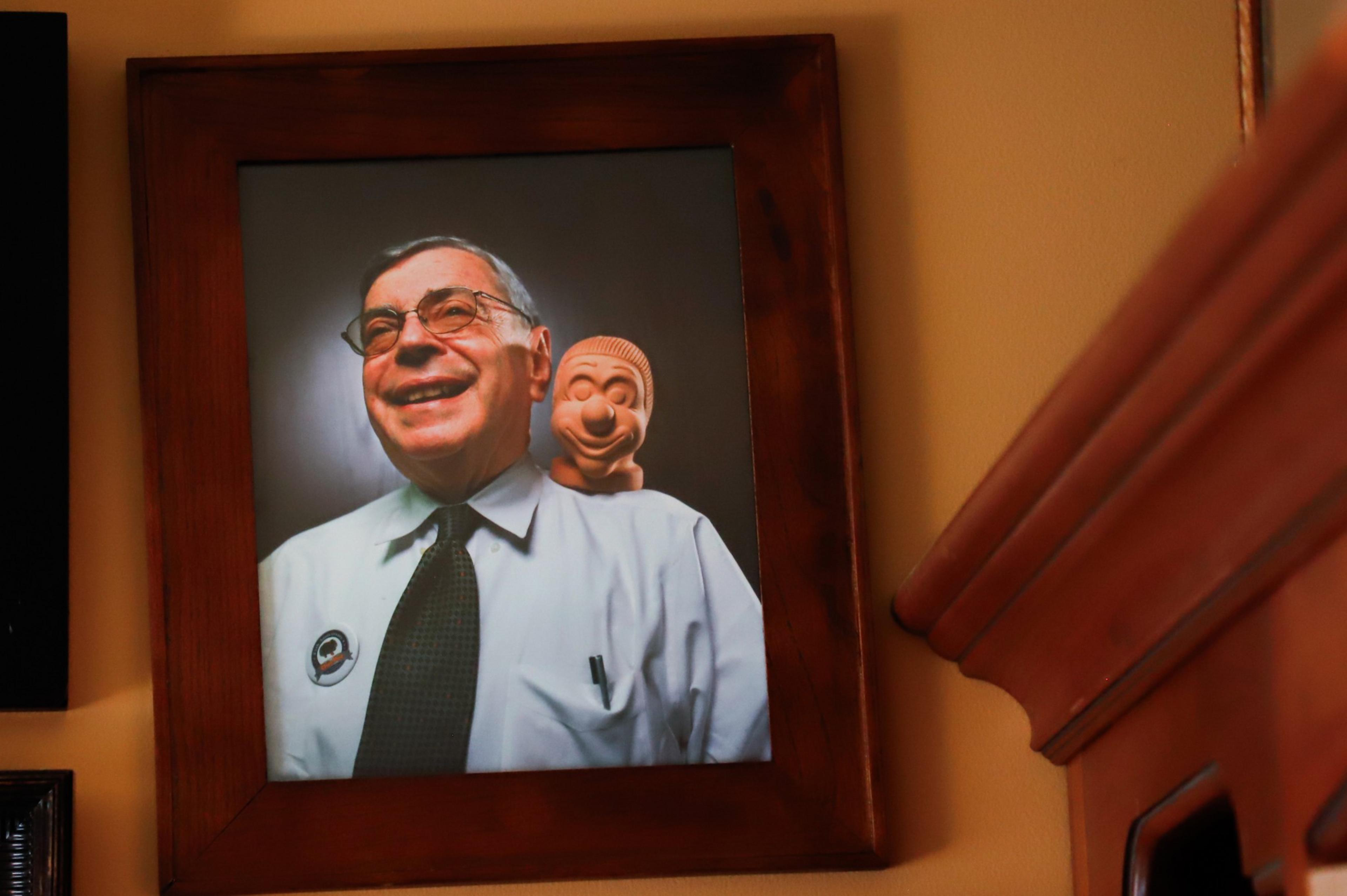Chia Pets, terracotta figurines that sprout chia seeds like hair, have stayed popular since their widespread launch back in 1981. That’s largely thanks to the marketing acumen of the man behind their success, Joseph Pedott. Pedott, who founded both an advertising and a gadget company in San Francisco, died in June at the age of 91 after seven decades of doing business in the city.
A few years after the Chia Pet’s blazing fame, Pedott took on another kitschy product: the Clapper, which he promoted with an ear worm of a slogan. The “clap-on, clap-off” device, which allows you to turn off an appliance with the clap of your hands, quickly became a household name after Pedott updated the design and changed the name from the original, Great American Turn-On.
“Products like the Chia Pet and the Clapper are almost cult,” Pedott said in an oral history collected by the Smithsonian Institute (opens in new tab), and he estimated that 90% of the American public knew the brands.
“The Chia Pet got Joe into the Smithsonian,” Pedott’s nephew said at his memorial service. “And the Clapper got him into Homer Simpson’s Lazy Hall of Fame.”
Yet the company’s most popular product, according to Joseph Enterprises Vice President Michael Hirsch, is something else entirely: the Ove Glove. Hirsch would know—he worked with Pedott at his eponymous business for more than four decades. The industrial-grade potholder is also the favorite of Pedott’s partner of 26 years, Carol Katz, who said she uses it every day.
Throughout the years, Pedott represented all sorts of products, everything from duct tape to insect repellent, from gardening tools to dog-training devices. Many of them experienced their own notable—albeit less showy—successes, according to Hirsch. There have also been the products that never took off: a Christmas tree preservative called Prolong, a serrated knife for cutting pumpkins.
Yet behind all the jingles, marketing copy and television airtime is a different story. It’s one about Pedott himself, about how the principles that guided his life—kindness, honesty, fairness—made him not only a beloved friend but also an astute businessman. Many of these innate qualities bloomed from the rocky soil of Pedott’s difficult home life, according to Katz.
“You can’t understand Joe without going back to his childhood,” Katz said. “It explains everything.”
Early Days

Pedott contracted rheumatic fever when he was 11, a condition that landed him in the hospital and contributed to the heart issues he suffered later in life. While he was hospitalized as a child, his mother died, leaving him alone with an abusive father. Eventually, Pedott ran away from home. At the age of 16, he ended up living in a tiny room in a YMCA in Chicago, Katz said.
While there, he met a series of mentors and counselors, Katz said, people who steered him through high school and provided seed money for college at the University of Illinois. The marketing maven never forgot about this early support, and his later philanthropy benefited organizations like Mission Graduates and ScholarMatch, which assist first-time college students. Along the way, Pedott established a nonprofit (opens in new tab) with more than $10 million in assets to coordinate his giving—including being the most generous donor to Scholarship and Guidance Association (SGA) Youth & Family Services (opens in new tab) in Chicago, which supported him when he was a child.
“Joe was my rabbi,” said Rabbi Herb Tobin, who worked with Pedott for 20 years on his philanthropy, at Pedott’s memorial service at Temple Emanu-El in San Francisco. “He never missed an opportunity to do a good deed.”
Tobin goes on to share a story that Katz also told—what was an early test of his honesty all the way back in 1967.
Pedott had he promised his next advertising commission to a Hillel, the Jewish student life group, at the University of California Davis. Pedott’s commissions at that time ranged from $10 to $25, with his annual salary around $4,000. But Pedott’s next commission ended up being the largest sum he’d ever seen in his life: $25,000.
He tossed and turned, Katz said, trying to decide what to do, knowing he could give the organization $100 and it would never know the difference. But he would know, and that made all the difference. Pedott handed over the entire commission and has supported the organization (opens in new tab) ever since. When the group asked him if he wanted an honorary plaque, he said yes—in the name of his long-dead mother.
Ch-Ch-Ch-Chia

Pedott first learned about Chia Pets in 1977 at a home-and-housewares fair at the sprawling convention center McCormick Place in his native Chicago, where he asked the vice president of Thrifty Drug to name his bestselling holiday product.
“Joe, something that’s been the best I’ve had for two years, it’s the most stupid thing. … It’s called Chia Pet,” the VP said, according to Pedott’s recollections (opens in new tab). Pedott eventually offered to take over the advertising for the planter heads—and ended up with an offer to buy the whole Chia Pet brand.
Pedott accepted and built up the brand through advertising, including that catchy jingle. The first design was a ram, which the company still makes today, and many iterations followed: turtles, dogs, cats, the Golden Girls, Barack Obama, Donald Trump, Willie Nelson.
“Bob Ross has been a phenomenon,” Hirsch said of the Chia pet of the painter known for his happy little accidents. Licensing deals, such as for Shrek or the Baby Yoda, bring a lot of revenue, and llamas and hedgehogs are currently the most popular animals.
In 2018, Pedott sold Joseph Enterprises and Joseph Pedott Advertising and Marketing to Joel Weinshanker, the president of the National Entertainment Collectibles Association and owner of Elvis Presley’s Graceland.
“Joel is a master licensor and a very creative man,” Hirsch said. “And he always wanted to own the Chia Pet and the Clapper.”
Pedott continued to work for his companies under Weinshanker until January, only five months before he died.
Leading With Love
From the time when Pedott set the world on fire—literally—with his very first advertising by lighting rubbing alcohol on fire for a commercial about a Formica-topped table, Pedott has had numerous flashes of brilliance.
“He was the best negotiator I’ve ever seen,” Hirsch said.
When asked about the secrets to his long-standing success, his partner and colleagues point to a core ingredient: kindness. It’s not a quality you typically think of as being part of the best business deals.

Pedott taught Hirsch that you knew you had a good deal when you weren’t sure which side you rather be on, the buyer or the seller—because it worked out for everyone. Pedott encouraged Hirsch to frequently switch roles to try to understand others’ perspectives.
As an avid traveler, Pedott was used to meeting people different from himself. Even as he suffered from a heart condition that would frequently hospitalize him while abroad, it didn’t stop him from adventurous travels to the Amazon, Vietnam, Bali, Australia, Tasmania, Russia and Afghanistan. He went to India 15 times and to Hong Kong every year for New Year’s Eve, as recently as 2018.
A shadow box of his collected passports hangs in his Nob Hill flat, evidence of his global adventures. He had business connections in India and China who had welcomed him as part of their families, calling him “brother” or “uncle.”
“He was very people-smart,” Katz said. “He had friends throughout the world who adored him, and he kept up with his friendships.”
This knowledge of everyday people from all over likely led to his savviness as a marketer and his kindness as a boss. He loved the people around him—including Katz, whom he told every day she was the love of his life.
For what ended up being his last outing, Katz took Pedott to the Tunnel Tops in the Presidio. He was in a wheelchair, but he managed to walk for short stretches. He loved the park, the fresh air, the views of the Golden Gate Bridge.
Pedott also loved his adopted city of San Francisco, where he lived for nearly seven decades and sold the products that garnered him worldwide recognition.
“Isn’t it wonderful?” he asked in his recollections (opens in new tab) about his first time seeing the city. “The weather’s great, people are friendly, white buildings stay white. What am I doing in Chicago?”
